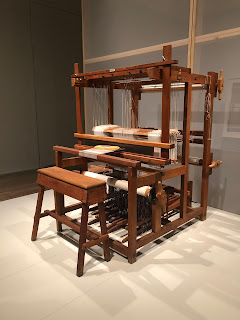'Guilt and fury: how Covid brought mothers to breaking point’, Natasha Walter, Guardian 28 Feb 2021

This needs sharing far and wide — Natasha Walter’s brilliant article on the feminism of care . * Here’s how I see things, relative to that thing I call ‘Motherload’. Care is the highest value humanity has. My personal metaphor or shorthand for it has long been ‘Motherload’ (as any avid reader of this blog will exhaustedly be aware). The visible and invisibilised labour of care. Others have termed it the ‘mental load’, the ‘emotional load’. It doesn’t really matter what label we give it, we are always brought back to this idea of a burden, and the question of what to do with it. The greatest vulnerability that carers face is not that others exploit what they offer, it is that those who care cannot not care. Whether it is a role more or less willingly or resentfully adopted, or an identity thoroughly embraced and celebrated, those who care cannot put that load down . They do not allow themselves to, and they do not want to. They want to carry their Motherloads. And th...





